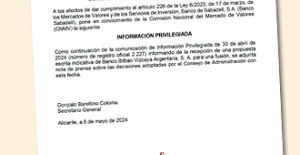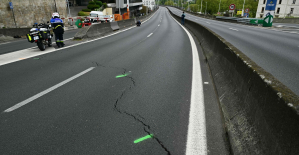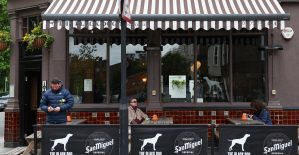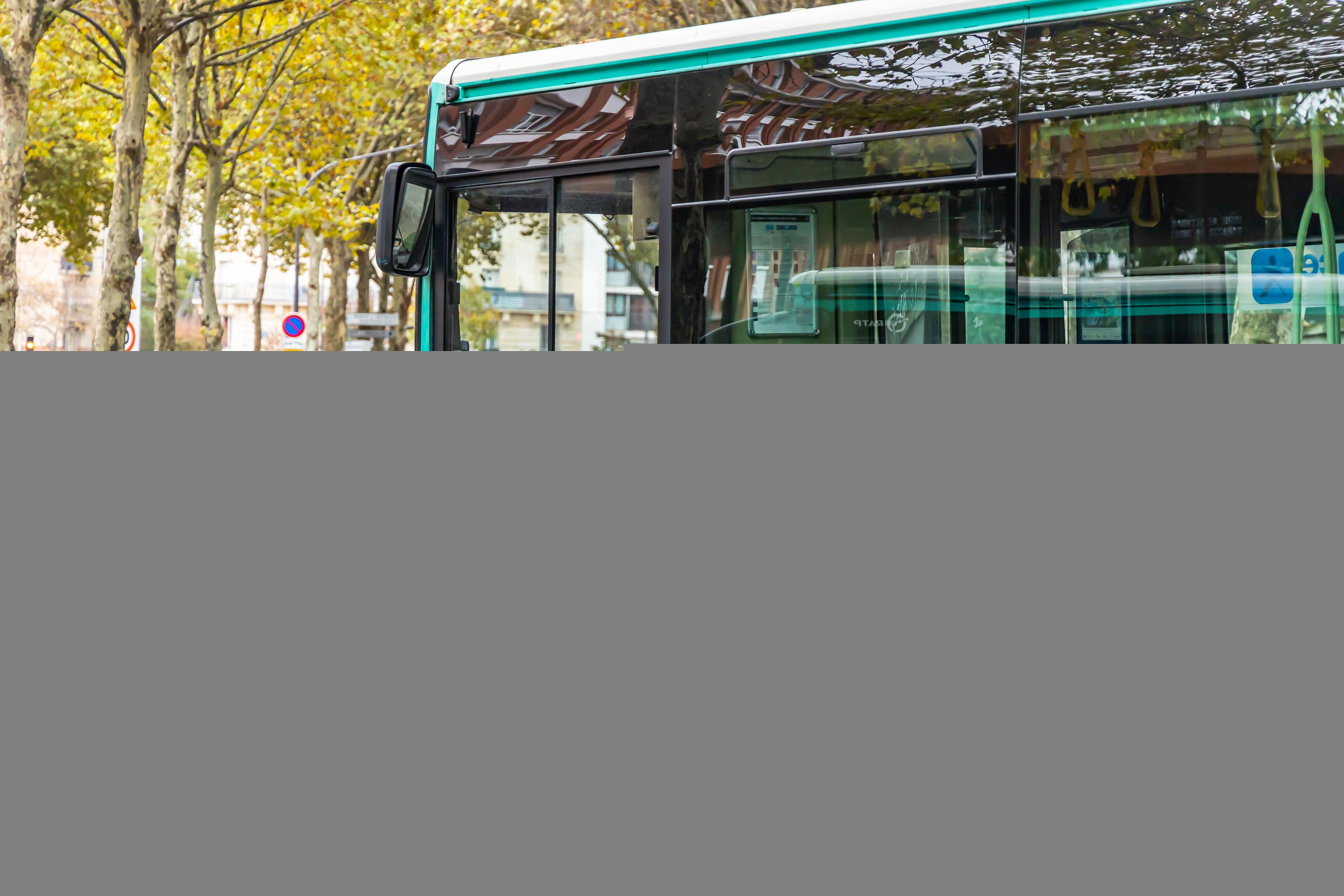Parking space in big cities is scarce. In Hamburg, the Senate is trying to alleviate the shortage by increasing the number of residential parking areas - at least for the residents. A good 40 new parking zones have been added since 2020, in which maximum parking times now apply and parking fees are usually also due. The number of resident parking zones has thus tripled.
But what simplifies the search for a parking space for residents in the mostly inner-city popular districts makes it an almost unsolvable problem for the employees of local shops, medical practices, businesses and companies. This has been causing a massive dispute in the Hanseatic city for more than a year - even in politics.
Because: Employees of nearby shops, craft businesses or clinics cannot apply for resident parking permits, so they have to pay fees if they want to come by car and move their vehicle every few hours in order not to exceed the maximum parking time.
The Chamber of Commerce and Crafts and many affected institutions have been critical and have therefore been loudly demanding solutions to the problem since the massive expansion of the resident parking zones. The Altona Children's Hospital is even currently suing the city.
On Tuesday, the traffic authority made a proposal for a solution. Companies, companies and institutions such as hospitals can apply for special permits for employees who have to travel to work outside of subway hours (1 a.m. to 4.30 a.m.). Employees and local residents can then use them to park indefinitely in the zone.
The shift has to start before 6 a.m. - and the ID cards are not issued to the individual employees, but issued to the companies and institutions as an "adjusted contingent".
In doing so, the authority is using a loophole in the road traffic regulations, which do not allow special permits for individual employees, but provide regulations for vehicles used by craft businesses, for example.
Just like the craft businesses are already doing for special permits, the other businesses will also have to pay 250 euros for each permit and year in the future. The permits do not then apply to individual vehicles, but can be distributed to the employees who work the night or early shift.
The traffic authority, led by Green politician Anjes Tjarks, justifies its accommodation, among other things, with the fact that the resident parking zones have generally been successful. The utilization of the parking spaces in the areas has dropped significantly in some cases. The authority had had the parked cars counted in the Schlump zone in Eimsbüttel and in St. Georg.
The investigation showed that the utilization of parking spaces at Schlump has fallen from 103 percent to 88 percent. The district came to 103 percent because many cars were illegally parked there outside of the actual parking spaces. This freed up space to create special permits for shift workers.

 Sabadell rejects the merger with BBVA and will fight to remain alone
Sabadell rejects the merger with BBVA and will fight to remain alone In Germany, the far left wants to cap the price of “doner kebabs”
In Germany, the far left wants to cap the price of “doner kebabs” Israel-Hamas war: Gaza between hope of truce and fear of Israeli offensive in the South
Israel-Hamas war: Gaza between hope of truce and fear of Israeli offensive in the South “Mom, Dad, please don’t die”: in the United States, a nine-year-old child saves the lives of his parents injured in a tornado
“Mom, Dad, please don’t die”: in the United States, a nine-year-old child saves the lives of his parents injured in a tornado The presence of blood in the urine, a warning sign of bladder cancer
The presence of blood in the urine, a warning sign of bladder cancer A baby whose mother smoked during pregnancy will age more quickly
A baby whose mother smoked during pregnancy will age more quickly The euro zone economy grows in April at its best pace in almost a year but inflationary pressure increases
The euro zone economy grows in April at its best pace in almost a year but inflationary pressure increases Children born thanks to PMA do not have more cancers than others
Children born thanks to PMA do not have more cancers than others “House of the Dragon”, “Succession”… Max, the new streaming platform from HBO and Discovery, launched in France on June 11
“House of the Dragon”, “Succession”… Max, the new streaming platform from HBO and Discovery, launched in France on June 11 The A13 motorway will finally reopen this Friday, in one direction only
The A13 motorway will finally reopen this Friday, in one direction only TNT commission of inquiry: tensions between LFI deputies and Macronists before the vote on the report
TNT commission of inquiry: tensions between LFI deputies and Macronists before the vote on the report Apple unveils a new, more efficient iPad range
Apple unveils a new, more efficient iPad range The Gaza War invites itself to the 2024 Pulitzer Prizes
The Gaza War invites itself to the 2024 Pulitzer Prizes Judith Godrèche presents a short film on sexual violence in Cannes
Judith Godrèche presents a short film on sexual violence in Cannes Kevin Spacey: new trial in sight in London for the American actor, for sexual assault
Kevin Spacey: new trial in sight in London for the American actor, for sexual assault Taylor Swift fans make London pub Black Dog their new place of pilgrimage
Taylor Swift fans make London pub Black Dog their new place of pilgrimage Omoda 7, another Chinese car that could be manufactured in Spain
Omoda 7, another Chinese car that could be manufactured in Spain BYD chooses CA Auto Bank as financial partner in Spain
BYD chooses CA Auto Bank as financial partner in Spain Tesla and Baidu sign key agreement to boost development of autonomous driving
Tesla and Baidu sign key agreement to boost development of autonomous driving Skoda Kodiaq 2024: a 'beast' plug-in hybrid SUV
Skoda Kodiaq 2024: a 'beast' plug-in hybrid SUV The home mortgage firm rises 3.8% in February and the average interest moderates to 3.33%
The home mortgage firm rises 3.8% in February and the average interest moderates to 3.33% This is how housing prices have changed in Spain in the last decade
This is how housing prices have changed in Spain in the last decade The home mortgage firm drops 10% in January and interest soars to 3.46%
The home mortgage firm drops 10% in January and interest soars to 3.46% The jewel of the Rocío de Nagüeles urbanization: a dream villa in Marbella
The jewel of the Rocío de Nagüeles urbanization: a dream villa in Marbella Institutions: senators want to restore the accumulation of mandates and put an end to the automatic presence of ex-presidents on the Constitutional Council
Institutions: senators want to restore the accumulation of mandates and put an end to the automatic presence of ex-presidents on the Constitutional Council Europeans: David Lisnard expresses his “essential and vital” support for François-Xavier Bellamy
Europeans: David Lisnard expresses his “essential and vital” support for François-Xavier Bellamy Facing Jordan Bardella, the popularity match turns to Gabriel Attal’s advantage
Facing Jordan Bardella, the popularity match turns to Gabriel Attal’s advantage Europeans: a senior official on the National Rally list
Europeans: a senior official on the National Rally list These French cities that will boycott the World Cup in Qatar
These French cities that will boycott the World Cup in Qatar “The future is for us”: “disappointed” and “proud” at the same time, Al-Khelaïfi sees the glass half full after the elimination of PSG
“The future is for us”: “disappointed” and “proud” at the same time, Al-Khelaïfi sees the glass half full after the elimination of PSG PSG: “Since January, these have not been my best matches,” agrees Zaire-Emery, who promises to “come back stronger”
PSG: “Since January, these have not been my best matches,” agrees Zaire-Emery, who promises to “come back stronger” “What is this question, honestly?” : Nasser Al-Khelaïfi (very) annoyed after PSG-Dortmund
“What is this question, honestly?” : Nasser Al-Khelaïfi (very) annoyed after PSG-Dortmund “I am the guy who has to score the goals”: Mbappé does not hide and assumes responsibility after PSG’s exit
“I am the guy who has to score the goals”: Mbappé does not hide and assumes responsibility after PSG’s exit


















